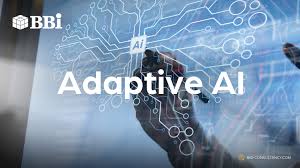info@gladsme.in
+91.8891968718
Unlocking the Potential of Adaptive AI: A Path to Smarter Solutions
Unlocking the Potential of Adaptive AI: A Path to Smarter Solutions

Artificial Intelligence (AI) has undergone remarkable advancements, but one area stands out for its transformative potential: adaptive AI. This blog explores the concept of adaptive AI, its applications across industries, benefits, challenges, and considerations for the future.
What is Adaptive AI?
Adaptive AI refers to AI systems capable of learning from interactions with their environment and adjusting their behavior accordingly. Unlike traditional AI, adaptive AI evolves over time, continuously improving and optimizing its performance.
Applications Across Industries:
From personalized recommendations in e-commerce to predictive analytics in healthcare, adaptive AI is revolutionizing various sectors. It powers autonomous vehicles, enhances cybersecurity measures, and personalizes education experiences, demonstrating its versatility and impact.
Benefits and Opportunities:
Adaptive AI offers numerous benefits, including enhanced performance, personalized experiences, improved efficiency, continuous improvement, and scalability. These advantages drive innovation, efficiency, and competitiveness in organizations adopting adaptive AI solutions.
Challenges and Considerations:
However, the adoption of adaptive AI poses challenges related to data privacy, bias, transparency, ethics, and regulatory compliance. Addressing these issues is crucial for ensuring responsible development and deployment of adaptive AI technologies.
In conclusion, adaptive AI represents a groundbreaking advancement in AI technology, promising smarter, more efficient, and personalized solutions across industries. While its potential is immense, it is essential to navigate the challenges and considerations responsibly to unlock the full benefits of adaptive AI.
Related Blogs

The Importance of Data Structures in Software Development
Read More...
Exploring Machine Learning Algorithms: A Beginner's Guide
Read More...
The Evolution of Programming Languages: From Assembly to Rust
Read More...
Understanding Big O Notation: A Guide for Developers
Read More...Subscribe for our Newsletter
Subscribe to elevate your software game! Stay updated on the latest trends, coding insights, and exclusive promotions with our newsletter.
